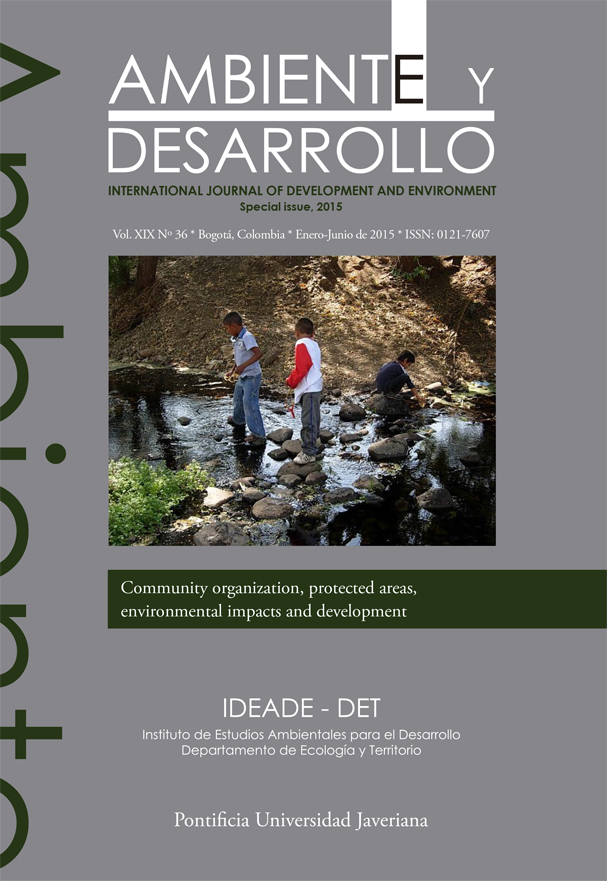Abstract
This paper analyses protected areas in Galicia (Spain) by adopting the perspectiveof critical human geography. The paper begins by providing an overview of criticalliterature on protected natural areas. Then, it traces the evolution of the protectedareas in this case-study geographical region, correlated to the different socio-politicaland cultural contexts in which decision-making occurred. In this context the finalsection discusses the evolution of protected areas in Galicia in light of the theoreticalsection. The paper argues that protected areas in Galicia have to be understoodas political products and, despite the common (and rhetoric) mention of existingprotected areas in planning documents, tourism promotion, or signposting, thecontribution of these protected areas to effective spatial planning and conservationmanagement is marginal.Ambiente y Desarrollo is registered under a Creative Commons Attribution 4.0 International Public License. Thus, this work may be reproduced, distributed, and publicly shared in digital format, as long as the names of the authors and Pontificia Universidad Javeriana are acknowledged. Others are allowed to quote, adapt, transform, auto-archive, republish, and create based on this material, for any purpose (even commercial ones), provided the authorship is duly acknowledged, a link to the original work is provided, and it is specified if changes have been made. Pontificia Universidad Javeriana does not hold the rights of published works and the authors are solely responsible for the contents of their works; they keep the moral, intellectual, privacy, and publicity rights.
Approving the intervention of the work (review, copy-editing, translation, layout) and the following outreach, are granted through an use license and not through an assignment of rights. This means the journal and Pontificia Universidad Javeriana cannot be held responsible for any ethical malpractice by the authors. As a consequence of the protection granted by the use license, the journal is not required to publish recantations or modify information already published, unless the errata stems from the editorial management process. Publishing contents in this journal does not generate royalties for contributors.


